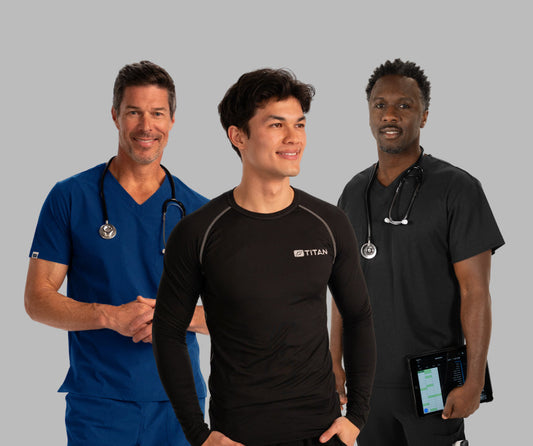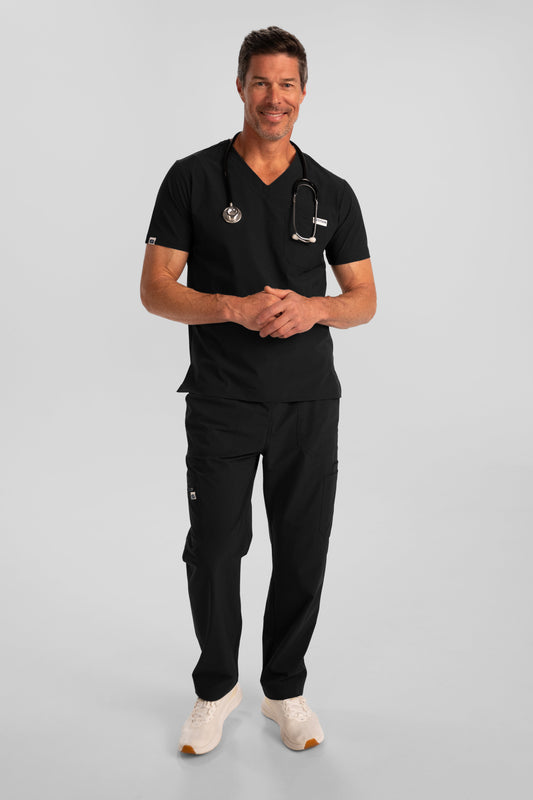The healthcare industry is a dynamic field that offers a multitude of career opportunities for individuals looking to enter the workforce without a formal college degree. One of the most recognizable uniforms within this field is the scrub—a versatile outfit that symbolizes care, dedication, and professionalism. Below, we explore various aspects of working in scrubs without needing a degree, from the benefits of such positions to practical steps for breaking into the field.
Introduction: Embarking on a Healthcare Career Without a Degree
For those seeking stability and meaningful work, a career in healthcare can be incredibly rewarding. The beauty of entering this field without a degree is that there are ample opportunities to make a difference while also enjoying a good salary. According to the Bureau of Labor Statistics, the healthcare sector is expected to grow significantly over the next decade, presenting numerous job openings for those without formal education.
This article delves into various roles that require scrubs but do not require a college degree, the skills and certifications you may need to acquire, and how you can get started on your path to a fulfilling career.
One of the most accessible entry points into the healthcare field is through positions such as Certified Nursing Assistants (CNAs) or Medical Assistants (MAs). These roles not only provide essential support to healthcare teams but also allow you to interact directly with patients, enhancing your communication and interpersonal skills. In many cases, training programs for these positions can be completed in just a few weeks or months, making it feasible for individuals to quickly transition into the workforce. Additionally, many employers offer on-the-job training, allowing you to gain hands-on experience while earning a paycheck.
Moreover, the healthcare industry is rich with diverse opportunities that extend beyond traditional patient care. Roles such as medical billing and coding specialists or pharmacy technicians are crucial for the smooth operation of healthcare facilities and often require only a certification or diploma. These positions not only contribute to patient care indirectly but also offer a chance to work in various settings, from hospitals to private practices, and even remote positions. As technology continues to evolve, the demand for skilled workers in these areas is likely to rise, making them a smart choice for those looking to enter the field without a degree.
Understanding the Demand: What Jobs Require You to Wear Scrubs Without a Degree
Healthcare roles that require the wearing of scrubs span numerous settings—hospitals, clinics, nursing homes, and even private practices. Without a degree, many individuals can still step into these environments thanks to the high demand for support roles.
Some commonly sought-after tallies include:
- Medical Assistants
- Phlebotomists
- Emergency Medical Technicians (EMTs)
- Dental Hygienists
- Home Health Aides
The vital nature of these positions cannot be understated, as they provide essential support that enables healthcare facilities to operate effectively. With the aging population and increased healthcare needs, these roles are in a continual state of demand.
Medical assistants, for instance, play a crucial role in both administrative and clinical tasks, ensuring that healthcare providers can focus on patient care. They are often the first point of contact for patients, managing appointments, updating medical records, and even assisting with minor procedures. Their versatility makes them invaluable in fast-paced environments where every second counts. Similarly, phlebotomists are essential for the diagnostic process, as they are responsible for drawing blood and preparing samples for laboratory analysis. Their expertise not only aids in accurate diagnosis but also helps to build patient trust, as a skilled phlebotomist can significantly reduce the discomfort associated with blood draws.
Emergency Medical Technicians (EMTs) are another critical component of the healthcare system, often being the first responders in emergencies. Their training allows them to assess patients quickly and provide life-saving interventions on-site. This role requires not only technical skills but also the ability to remain calm under pressure, making it both challenging and rewarding. Home health aides, on the other hand, provide personalized care to individuals in their own homes, assisting with daily activities and ensuring that patients receive the necessary support to maintain their independence. This role is particularly important as it addresses the growing need for in-home care solutions, allowing patients to age in place while receiving the assistance they require.
Top 5 Healthcare Roles That Don’t Require a Degree
If you're contemplating a career in healthcare that allows you to don scrubs without the commitment of a full degree, here are five compelling options:
- Medical Assistant: These professionals handle administrative tasks and support medical staff in clinical settings.
- Phlebotomist: Responsible for drawing blood for tests, donations, or transfusions, phlebotomists can often gain certification through short training programs.
- EMT: Emergency Medical Technicians respond to ambulance calls, providing critical care until patients reach the hospital.
- Dental Hygienist: Working under the supervision of a dentist, these professionals ensure optimal oral health by cleaning teeth and educating patients.
- Home Health Aide: This role involves assisting patients in their homes, providing personal care, and support with day-to-day activities.
The Benefits of Working in Scrubs Without a Formal Education
Choosing a career that allows you to work in scrubs without a degree comes with several advantages:
- Quick Entry: Many roles offer training programs that can be completed in months rather than years, allowing for a faster transition into the workforce.
- Job Stability: With the continual growth of the healthcare sector, many scrub-wearing roles provide job security, even during economic downturns.
- Personal Fulfillment: Healthcare roles allow you to make a direct impact on the lives of others, creating a sense of job satisfaction.
- Competitive Salaries: Many positions provide competitive compensation and benefits, making them financially alluring.
Skills and Certifications: What You Need to Get Started
To successfully land a position that requires scrubs, you'll need to develop specific skills and potentially earn certifications. Here are some vital competencies and requirements:
- Attention to Detail: Essential for following protocols and providing accurate care.
- Communication Skills: Vital for interacting with patients and medical staff.
- Technical Skills: Depending on the role, this may include proficiency with medical equipment or software.
While not all roles require certification, obtaining it can enhance your job prospects. For example, becoming a Certified Medical Assistant (CMA) or earning CPR certification could make you a more attractive candidate.
A Day in the Life: Job Descriptions for Scrub-Wearing Positions
The daily responsibilities in healthcare roles can vary widely. Let’s take a look at what a typical day might entail for a few positions:
Medical Assistant
The medical assistant typically starts the day by preparing patient rooms and reviewing patient schedules. They take vital signs, collect patient histories, and may assist in minor surgical procedures.
Phlebotomist
Phlebotomists often work in labs or clinics where their day consists of greeting patients, drawing blood, and sending samples for testing while maintaining an empathetic approach toward apprehensive patients.
EMT
EMTs work in high-pressure environments where their day can change in an instant. They respond to emergency calls, provide first aid, stabilize patients, and transport them safely to medical facilities.
How to Get Started: Education and Certification Requirements
To start a career in scrubs, follow these actionable steps:
- Research Career Options: Identify which role excites you the most and aligns with your strengths.
- Complete Training Programs: Enroll in relevant certificate programs that cater to your chosen field.
- Obtain Certifications: Seek certification where applicable, which may increase your employability.
- Gain Experience: Look for internships, volunteer opportunities, or entry-level positions to build your resume.
- Network: Connect with professionals in the field through social media or local events to discover opportunities.
Where to Find Job Openings: Resources and Tips
Finding job openings in the healthcare industry can be straightforward if you know where to look. Here are some valuable resources:
- Online Job Boards: Websites such as Indeed, Glassdoor, and LinkedIn often list healthcare job openings.
- Healthcare Facilities’ Websites: Check the career sections of hospitals and clinics where you would like to work.
- Local Career Centers: Utilize services offered by community workforce centers for guidance on job resources.
- Networking Events: Attend career fairs or healthcare expos to meet employers and learn more about available positions.
Conclusion: Your Next Steps Towards a Rewarding Career
Embarking on a journey that leads to a career in healthcare while wearing scrubs without having a degree is not only possible but can be incredibly rewarding. The demand for healthcare professionals continues to grow, offering numerous paths to success and fulfillment. Consider your interests, gain relevant training, and confidently explore the available opportunities within this thriving sector.
Titan Scrubs: Equipping You for Success in Any Role
Investing in high-quality scrubs can enhance your professional image and comfort at work. Titan Scrubs offers a wide range of options tailored for various healthcare roles, ensuring you feel confident and prepared as you embark on your career journey. Tailored for functionality, style, and comfort, Titan Scrubs supports your transition into the healthcare field, no matter which path you choose.







